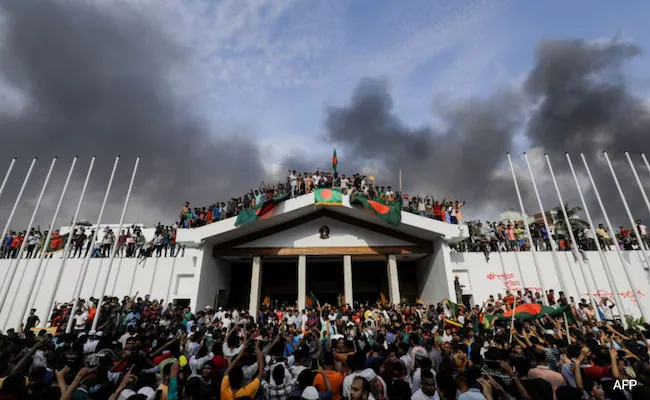Desk: Since the fall of Sheikh Hasina’s government on August 5 last year, the situation in Bangladesh has changed dramatically. Statues of Sheikh Mujibur Rahman have been demolished, his residence has been bulldozed, and public holidays on his birth and death anniversaries have been revoked. Meanwhile, Islamic forces are actively trying to reshape the nation’s ideological landscape. Even the 1971 war, which led to the creation of Bangladesh, is now being questioned.
Bangladesh was founded on the basis of Bengali language and culture, as it was claimed that West Pakistan was oppressing the region. However, recent narratives attempt to dismiss the war as an unnecessary conflict that disrupted Islamic unity.
A recent article published in Chhatra Sangbad, the official magazine of Jamaat-e-Islami’s student wing, Chhatra Shibir, echoed this sentiment. It stated, “Some Muslims blindly participated in the bloody war of 1971 without thinking of the consequences. Their lack of foresight led to the war. May Allah forgive them.”
The article sparked widespread controversy, leading to the magazine being withdrawn from circulation, both online and offline. However, the incident has raised concerns about the ideological stance of those now in power following Sheikh Hasina’s departure.
The editors of the magazine later claimed that the article was published without proper review, calling it a mistake. However, given Jamaat-e-Islami’s history, many are skeptical of this justification. Jamaat had openly opposed the creation of Bangladesh in 1971, siding with the Pakistani army and allegedly supporting armed groups like Razakars, Al-Badr, and Al-Shams in committing atrocities against the local population.
Experts believe that Jamaat-e-Islami and similar organizations are testing the waters to determine how far they can push their hardline Islamic agenda in Bangladesh. This article appears to be part of that effort. Jamaat has consistently advocated for a unified Pakistan and denied its controversial role in the 1971 war.
Recent developments further indicate a shift in Bangladesh’s geopolitical stance. In the past month, Bangladeshi military officials have visited Pakistan twice. Nobel laureate Muhammad Yunus has also met with former Pakistani Prime Minister Shehbaz Sharif. Additionally, restrictions on the physical screening of Pakistani nationals at Bangladeshi airports have been lifted. These developments have raised concerns about the changing political dynamics in the country.




